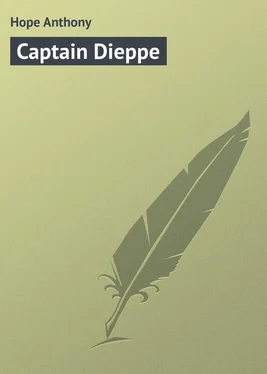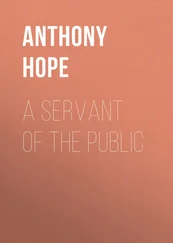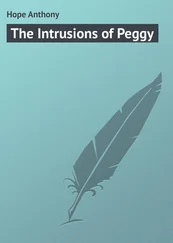Anthony Hope - Captain Dieppe
Здесь есть возможность читать онлайн «Anthony Hope - Captain Dieppe» — ознакомительный отрывок электронной книги совершенно бесплатно, а после прочтения отрывка купить полную версию. В некоторых случаях можно слушать аудио, скачать через торрент в формате fb2 и присутствует краткое содержание. Жанр: foreign_prose, на английском языке. Описание произведения, (предисловие) а так же отзывы посетителей доступны на портале библиотеки ЛибКат.
- Название:Captain Dieppe
- Автор:
- Жанр:
- Год:неизвестен
- ISBN:нет данных
- Рейтинг книги:3 / 5. Голосов: 1
-
Избранное:Добавить в избранное
- Отзывы:
-
Ваша оценка:
- 60
- 1
- 2
- 3
- 4
- 5
Captain Dieppe: краткое содержание, описание и аннотация
Предлагаем к чтению аннотацию, описание, краткое содержание или предисловие (зависит от того, что написал сам автор книги «Captain Dieppe»). Если вы не нашли необходимую информацию о книге — напишите в комментариях, мы постараемся отыскать её.
Captain Dieppe — читать онлайн ознакомительный отрывок
Ниже представлен текст книги, разбитый по страницам. Система сохранения места последней прочитанной страницы, позволяет с удобством читать онлайн бесплатно книгу «Captain Dieppe», без необходимости каждый раз заново искать на чём Вы остановились. Поставьте закладку, и сможете в любой момент перейти на страницу, на которой закончили чтение.
Интервал:
Закладка:
"And you replied – ?"
"I made no reply," answered the Count, crossing his legs.
A combination of feelings prevented Dieppe from disclosing the incident of the previous night. He loved a touch of mystery and a possibility of romance. Again, it is not the right thing for a guest to open bolted doors. A man does not readily confess to such a breach of etiquette, and his inclination to make a clean breast of it is not increased when it turns out that the door in question leads to the apartments of his host's wife.
Finally, the moment for candour had slipped by: you cannot allow a man to explain a locality by means of forks and knives and pieces of bread and then inform him that you were all the while acquainted with its features. Dieppe was silent, and the Count, who was obviously upset by the recital of his grievances, presently withdrew to his study, a room on the upper floor which looked out on the gardens at the back of the house.
"What did they quarrel about?" Dieppe asked himself; the Count had thrown no light on that. "I 'll be hanged if I 'd quarrel with her," smiled the Captain, remembering the face he had seen at the other end of the passage. "But," he declared to himself, virtuously, "the cat may mew till it's hoarse – I won't open that door again." With this resolve strong in his heart, he took his hat and strolled out into the garden.
He had no sooner reached the front of the house than he gave an exclamation of surprise. The expanse of rather rough grass sprinkled with flower-beds, which stretched from the Castle to the point where the ground dipped steeply towards the river, was divided across by a remarkable structure – a tall, new, bare wooden fence, constituting a very substantial barrier. It stood a few paces to the right of the window which the Captain identified as his own, and ran some yards down the hill. Here was plain and strong evidence of the state of war which existed between the two wings. Neither the Count nor the Countess would risk so much as a sight of the other while they took their respective promenades. The Captain approached the obstacle and examined it with a humorous interest; then he glanced up at the wall above, drawing a couple of feet back to get a better view. "Ah," said he, "just half-way between my window and – hers! They are very punctilious, these combatants!"
Natural curiosity must, so far as it can, excuse Captain Dieppe for spending the rest of the morning in what he termed a reconnaissance of the premises, or that part of them which was open to his inspection. He found little. There was no sign of anybody entering or leaving the other wing, although (as he discovered on strolling round by the road) a gate in the wall on the right of the gardens, and a carriage-drive running up to it, gave independent egress from that side of the Castle. Breakfast with the Count was no more fruitful of information; the Count discussed (apropos of a book at which he had been glancing) the question of the Temporal Power of the Papacy with learning and some heat: he was, it appeared, strongly opposed to these ecclesiastical claims, and spoke of them with marked bitterness. Dieppe, very little interested, escaped for a walk early in the afternoon. It was five o'clock when he regained the garden and stood for a few moments looking down towards the river. It was just growing dusk, and the lights of the inn were visible in the village across the valley.
Fishermen are a persevering race, the young man in the soft hat was still at his post. But no, he was not fishing! He was walking up and down in a moody, purposeless way, and it seemed to the Captain that he turned his head very often towards the Castle. The Captain sat down on a garden-seat close under the barricade and watched; an idea was stirring in his brain – an idea that made him pat his breast-pocket, twirl his moustache, and smile contentedly. "Not much of a fisherman, I think," he murmured. "Ah, my friend, I know the cut of your jib, I fancy. After poor old Jean Dieppe, are n't you, my boy? A police-spy; I could tell him among a thousand!"
Equally pleased with the discovery and with his own acuteness in making it, the Captain laughed aloud; then in an instant he sat bolt upright, stiff and still, listening intently. For through the barricade had come two sounds – a sweet, low, startled voice, that cried half in a whisper, "Heavens, he 's there!" and then the rustle of skirts in hasty flight. Without an instant's thought – without remembering his promise to the Count – Dieppe sprang up, ran down the hill, turned the corner of the barricade, and found himself in the Countess's territory.
He was too late. The lady had made good her escape. There was nobody to be seen except the large yellow cat: it sat on the path and blinked gravely at the chagrined Captain.
"Animal, you annoy me!" he said with a stamp of his foot. The cat rose, turned, and walked away with its tail in the air. "I 'm making a fool of myself," muttered Dieppe. "Or," he amended with a dawning smile, "she 's making a fool of me." His smile broadened a little. "Why not?" he asked. Then he drew himself up and slowly returned to his own side of the barricade, shaking his head and murmuring, "No, no, Jean, my boy, no, no! He 's your host – your host, Jean," as he again seated himself on the bench under the barricade.
Evening was now falling fast; the fisherman was no longer to be seen; perfect peace reigned over the landscape. Dieppe yawned; perfect peace was with him a synonym for intolerable dulness.
"Permit me, my dear friend," said a voice behind him, "to read you a little poem which I have beguiled my leisure by composing."
He turned to find the Count behind him, holding a sheet of paper.
Probably the poet had his composition by heart, for the light seemed now too dim to read by. However this may be, a rich and tender voice recited to Dieppe's sympathetic ears as pretty a little appeal (so the Captain thought) as had ever been addressed by lover to an obdurate or capricious lady. The Captain's eyes filled with tears as he listened – tears for the charm of the verse, for the sad beauty of the sentiment, also, alas, for the unhappy gentleman from whose heart came verse and sentiment.
"My friend, you love!" cried the Captain, holding out his hand as the Count ended his poem and folded up the paper.
"And you are unhappy," he added.
The Count smiled in a sad but friendly fashion.
"Is n't it the same thing?" he asked. "And at any rate as to me you are right."
Dieppe wrung his hand. The Count, apparently much moved, turned and walked slowly away, leaving Dieppe to his meditations.
"He loves her." That was the form they took. Whatever the meaning of the quarrel, the Count loved his wife; it was to her the poem was written, hers was the heart which it sought to soften. Yet she had not looked hard-hearted. No, she had looked adorable, frankly adorable; a lady for whose sake any man, even so wise and experienced a man as Captain Dieppe, might well commit many a folly, and have many a heartache; a lady for whom —
"Rascal that I am!" cried the Captain, interrupting himself and springing up. He raised his hand in the air and declared aloud with emphasis: "On my honour, I will think no more of her. I will think, I say, no more of her."
On the last word came a low laugh from the other side of the barricade. The Captain started, looked round, listened, smiled, frowned, pulled his moustache. Then, with extraordinary suddenness, resolution, and fierceness, he turned and walked quickly away. "Honour, honour!" he was saying to himself; and the path of honour seemed to lie in flight. Unhappily, though, the Captain was more accustomed to advance.
CHAPTER III
THE LADY IN THE GARDEN
It is possible that Captain Dieppe, full of contentment with the quarters to which fortune had guided him, under-rated the merits and attractions of the inn in the village across the river. Fare and accommodation indeed were plain and rough at the Aquila Nera, but the company round its fireside would have raised his interest. On one side of the hearth sat the young fisherman, he in whom Dieppe had discovered a police-spy on the track of the secrets in that breast-pocket of the Captain's. Oh, these discoveries of the Captain's! For M. Paul de Roustache was not a police-spy, and, moreover, had never seen the gallant Captain in his life, and took no interest in him – a state of things most unlikely to occur to the Captain's mind. Had Paul, then, fished for fishing's sake? It by no means followed, if only the Captain could have remembered that there were other people in the world besides himself – and one or two others even in the Count of Fieramondi's house. "I 'll get at her if I can; but if she 's obstinate, I 'll go to the Count – in the last resort I 'll go to the Count, for I mean to have the money." Reflections such as these (and they were M. de Roustache's at this moment) would have shown even Captain Dieppe – not, perhaps, that he had done the fisherman an injustice, for the police may be very respectable – but at least that he had mistaken his errand and his character.
Читать дальшеИнтервал:
Закладка:
Похожие книги на «Captain Dieppe»
Представляем Вашему вниманию похожие книги на «Captain Dieppe» списком для выбора. Мы отобрали схожую по названию и смыслу литературу в надежде предоставить читателям больше вариантов отыскать новые, интересные, ещё непрочитанные произведения.
Обсуждение, отзывы о книге «Captain Dieppe» и просто собственные мнения читателей. Оставьте ваши комментарии, напишите, что Вы думаете о произведении, его смысле или главных героях. Укажите что конкретно понравилось, а что нет, и почему Вы так считаете.












